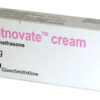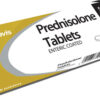Generic Name and Classification
Accutane, known generically as isotretinoin, belongs to the retinoid class of medications. It is a derivative of vitamin A and is primarily used to treat severe nodular acne. It is prescribed globally under various brand names and is considered a highly effective treatment for long-standing or resistant acne.
Mechanism of Action
Isotretinoin works by decreasing sebaceous gland activity, significantly reducing sebum production. It also reduces follicular epithelial cell proliferation, leading to a decreased incidence of clogged pores. This action helps reduce Propionibacterium acnes colonization, minimizing inflammation and acne formation.
Indications for Use
Accutane is indicated for the treatment of severe recalcitrant nodular acne unresponsive to conventional therapy, including systemic antibiotics. It is not typically the first-line treatment and is reserved for cases not improving with other medications. The use of Accutane must be accompanied by strict adherence to prescribed dosing and monitoring.
Dosage and Administration
Isotretinoin is administered orally in capsules, with doses typically ranging from 0.5 to 1 mg/kg/day divided into two distinct doses. Treatment courses usually extend for 15 to 20 weeks. Patients are advised to take capsules with meals to enhance absorption and efficacy. Adjustments are based on patient response and tolerability.
Pharmacokinetics
After oral administration, isotretinoin is absorbed variably and exhibits extensive interpatient variability. It undergoes hepatic metabolism with an elimination half-life ranging from 10 to 20 hours. Its major metabolites, 4-oxo-isotretinoin, display similar pharmacological activity and contribute to its overall effect.
Common Side Effects
Accutane use is associated with several common side effects, including dry skin, chapped lips, and increased sensitivity to UV light. Many patients experience thinning of hair and dryness of nasal mucus membranes, sometimes leading to nosebleeds. These effects generally resolve post-treatment.
Drug Interactions
Isotretinoin can potentially interact with other drugs. Concomitant use with tetracyclines increases the risk of pseudotumor cerebri. Patients should avoid Vitamin A supplements due to additive toxicity risks. It is also known to alter the effects of hormonal contraceptives, necessitating alternative or additional contraceptive measures.
Storage Instructions
Accutane should be stored at room temperature, typically between 20°C to 25°C (68°F to 77°F). Protect from moisture, heat, and light to maintain drug efficacy. Capsules should be kept in the original blister pack until ready for use to minimize exposure to elements that could degrade the medication.
Special Monitoring Requirements
Periodic liver function tests and lipid profiles are necessary for those on Accutane due to the risk of hepatotoxicity and hyperlipidemia. Female patients should have monthly pregnancy tests given the teratogenic potential of isotretinoin. Regular clinical assessment of mental health is also advisable during treatment.
Teratogenicity and Pregnancy
Isotretinoin carries a high risk of teratogenic effects, necessitating strict measures to prevent pregnancy during and after treatment. The iPLEDGE program mandates due diligence to educate and ensure compliance with effective contraceptive use and regular pregnancy testing throughout the treatment period and for one month afterward.
Patient Counseling Points
Patients must be counseled on the importance of adhering to prescribed dosing schemes and not sharing their medication with others. They should be informed about potential side effects and the necessity of regular monitoring appointments. Educating them on the extreme importance of not donating blood during and shortly after treatment is crucial to prevent transfusion-related risks to pregnant women.
Dietary Considerations
A balanced diet supporting overall health is recommended when undergoing isotretinoin therapy, with emphasis on vitamin-rich foods without additional vitamin A supplementation. Patients should be cautioned about potential interactions with grapefruit juice which can alter drug metabolism. Hydration is encouraged to counteract potential dryness effects.
Duration of Treatment
The typical course of Accutane is between 15 to 20 weeks unless specific circumstances necessitate a shorter or longer duration. Some patients may require a second treatment course after a waiting period if severe acne persists or recurs, contingent upon physician assessment and patient response. This approach tailors the treatment to individual patient needs while monitoring for sustained remission.
Long-term Efficacy
Studies suggest that Accutane offers long-lasting remission of severe acne symptoms in a significant majority of patients following a single course. The duration of effect may vary depending on individual factors such as skin type and acne severity. Patients who do experience a relapse may still derive benefit from a second, carefully monitored course, which reinforces Accutane’s role in long-term acne management.
Support Programs
Several support programs exist to assist patients with the psychological impacts and potential financial challenges posed by Accutane treatment. These programs provide resources for managing side effects and creating an open dialogue between patients and healthcare providers. Support networks can be essential for those undergoing this intensive form of acne therapy.








Reviews
There are no reviews yet.